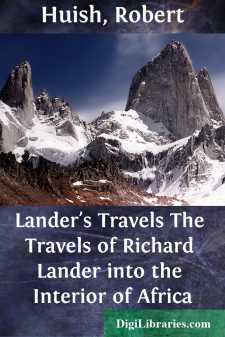Categories
- Antiques & Collectibles 13
- Architecture 36
- Art 48
- Bibles 22
- Biography & Autobiography 813
- Body, Mind & Spirit 142
- Business & Economics 28
- Children's Books 17
- Children's Fiction 14
- Computers 4
- Cooking 94
- Crafts & Hobbies 4
- Drama 346
- Education 46
- Family & Relationships 57
- Fiction 11829
- Games 19
- Gardening 17
- Health & Fitness 34
- History 1377
- House & Home 1
- Humor 147
- Juvenile Fiction 1873
- Juvenile Nonfiction 202
- Language Arts & Disciplines 88
- Law 16
- Literary Collections 686
- Literary Criticism 179
- Mathematics 13
- Medical 41
- Music 40
- Nature 179
- Non-Classifiable 1768
- Performing Arts 7
- Periodicals 1453
- Philosophy 64
- Photography 2
- Poetry 896
- Political Science 203
- Psychology 42
- Reference 154
- Religion 513
- Science 126
- Self-Help 84
- Social Science 81
- Sports & Recreation 34
- Study Aids 3
- Technology & Engineering 59
- Transportation 23
- Travel 463
- True Crime 29
Lander's Travels The Travels of Richard Lander into the Interior of Africa
by: Robert Huish
Description:
Excerpt
CHAPTER I.
Previously to entering upon the immediate subject of the origin and progress of the different voyages, which have been undertaken for exploring the interior of Africa, it may be not only interesting, but highly instructive, to take a rapid survey of the great Peninsula, as it appeared to the earlier travellers, and as it was found by the last of them, amongst whom may be included the individual, whose adventures in the present work, claim our chief attention. It is on record, that the coasts of Africa have been navigated from as early a period, as six hundred years before Christ, and, according to the earliest records of history, the circumnavigation of Africa was accomplished by the Phoenicians, in the service of Pharaoh Necho. On referring to Herodotus, the earliest and most interesting of Greek historians, and to whom we are indebted for the knowledge of many important facts relative to Africa, in the earliest periods of its history, we find, in corroboration of the circumnavigation of Africa by the Phoenicians, "that taking their course from the Red Sea they entered into the Southern Ocean; on the approach of autumn, they landed in Lybia, and planted some corn in the place, where they happened to find themselves; when this was ripe, and they had cut it down, they again departed. Having thus consumed two years, they in the third passed the columns of Hercules, and returned to Egypt. Their relation may obtain attention from others, but to me it seems incredible, for they affirmed that having sailed round Africa, they had the sun on their right hand."
It is worthy of remark, that the very circumstance, which led Herodotus to attach discredit to the circumnavigation of Africa by the Phoenicians, on account of their having the sun to the right, is the very strongest presumption in favour of its truth. Some historians have indeed endeavoured to prove, that the voyage was altogether beyond any means, which navigation at that early era could command; but in the learned exposition of Rennell, a strong degree of probability is thrown upon the early tradition. At all events it may be considered, that the obscure knowledge, which we possessed of the peninsular figure of Africa, appears to have been derived from the Phoenicians. Herodotus, however, was himself a traveller, in those early times, of no mean celebrity. Despairing of obtaining accurate information of the then known part of the habitable world, he determined to have recourse to travelling, for the purpose of completing those surveys, which had been undertaken by his predecessors, and which had been left in a dubious and indefinite state. He resided for a considerable period in Egypt, during which, he entered into a friendly communion with the native priests, from whom he obtained much accurate information, as well as a great deal that was false and exaggerated relative to the extensive region, which extends from the Nile to the Atlantic. According to his description it is much inferior in fertility to the cultivated parts of Europe and Asia, and suffering extremely from severe drought; yet he makes mention of a few spots, such as Cinyps, and the high tract Cyrene, which, undergoing the process of irrigation, may stand comparison with the richest portions of the globe....


